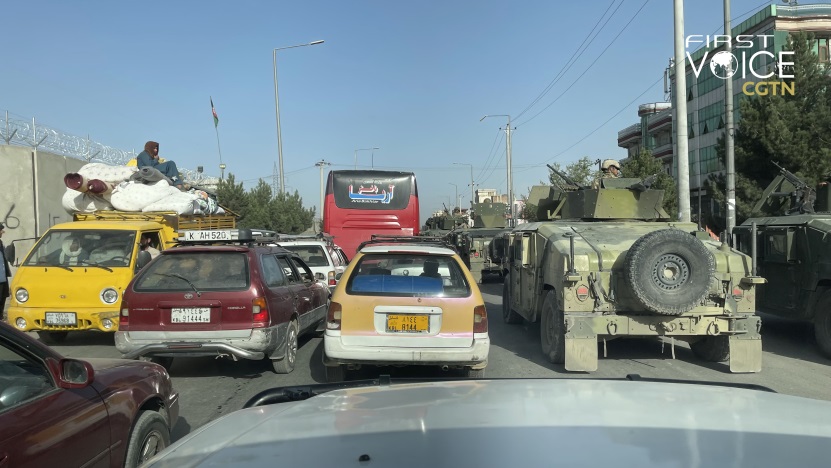Editor’s note: CGTN’s First Voice provides instant commentary on breaking stories. The daily column clarifies emerging issues and better defines the news agenda, offering a Chinese perspective on the latest global events.
In 2001, the United States went into Afghanistan with its CIA units and overthrew the Taliban, who then controlled the vast majority of the country. The feeling was jubilant at the time. Then U.S. President George W. Bush called for a Marshall Plan for Afghanistan, seeking to restructure the country as the U.S. once did to Europe after World War II.
What have the Afghan people got? The Asia Foundation-Afghanistan’s poll in 2019 found that 58.2 percent of Afghan people believe the country has been going in the wrong direction. Fear for personal safety has risen consecutively ever since 2012, with 74.5 percent of respondents saying that they fear for their personal safety.
So, forget about economic development, equality or education; the United States wasn’t even able to provide the Afghan people with a basic sense of security. After being promised so much, the Afghan people are left with a war-torn country and political instability that prevented the healing of their homeland.
To be fair to Joe Biden, the blame doesn’t just lie with him. Any U.S. president trying to withdraw from the country could be bombarded by criticism. The U.S.’ credibility has already been worn out by its actions elsewhere. Syria is the U.S. foreign policy catastrophe unfolding before our very eyes. Countries like Libya and Somalia are still embroiled in the effects of U.S. interventionism.

A decade of continued fighting has left Syria in shambles. /Reuters
“We just don’t have a post-conflict stabilization model that works,” President Bush’s National Security Advisor Stephen Hadley once said, according to the Washington Post. “Every time we have one of these things, it is a pickup game. I don’t have any confidence that if we did again, we would do any better,” he said.
Afghanistan is not the first of such failure, and it wouldn’t be the last. If the past twenty years of America’s nation-building rampage have taught us anything, it is that nation-building is an illusion, a failed experiment of U.S. foreign policy and an addiction that it can’t resist. Interventionism, the urge to change other countries’ political model while ignoring their societal preferences and cultural fabric, is the U.S.’ diplomatic sin.
It is time for the Afghan people to choose their destiny without outside interference. The same Asia Foundation poll found that 89 percent supported the effort to negotiate with the Taliban, and 64 percent believed that reconciliation between the Afghan government and the Taliban is possible, meaning the Afghan people are inclined to accept the Taliban as a ruling power.
Whoever is in charge next, the Taliban, President Ashraf Ghani, or some form of coalition government, will have to shoulder the burden to reconstruct a country whose social fiber has disintegrated after decades of chaos and conflicts, soothe a population rocked by insecurity and poverty, and re-establish Afghanistan’s identity on the global stage. Only those that put the people’s interest above all else could be the truly legitimate leaders of the country.
The world can offer its assistance by keeping away from meddling in the country’s internal politics. The ball is back in the Afghan people’s court, and it is their responsibility to pick it up.













